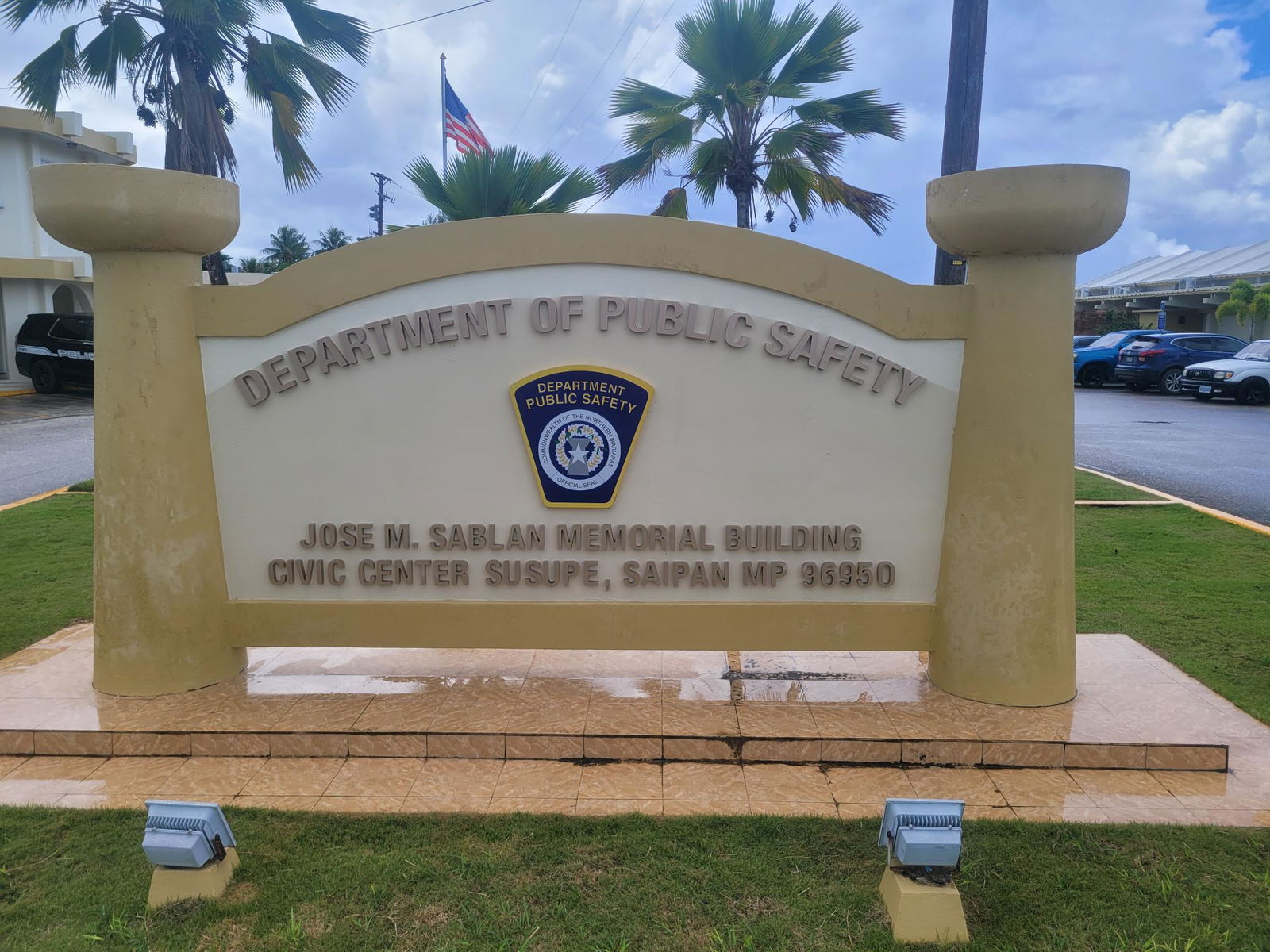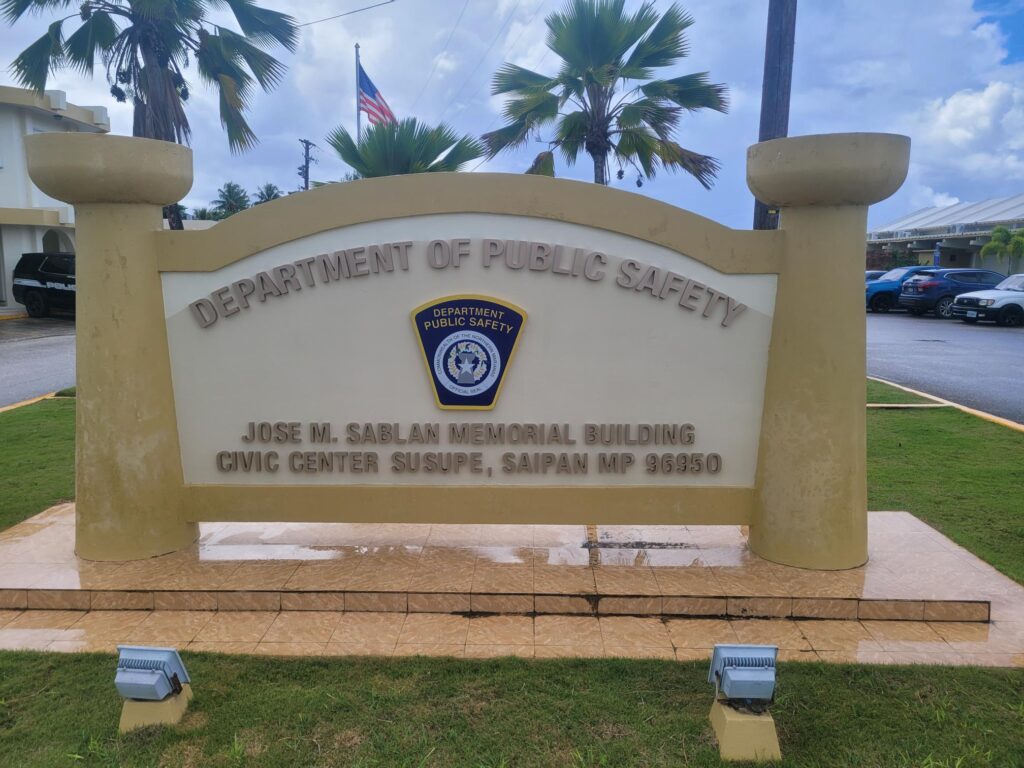
SUPERIOR Court Judge Joseph N. Camacho said the police, under the pretext and guise of impounding and inventorying a vehicle, conducted an unconstitutional warrantless criminal investigation that violated the 14th Amendment of the U.S. Constitution and Article 1 Section 3 of the CNMI Constitution in the criminal case against Kelvin Cabrera Sanchez.
Sanchez, 37, was charged with illegal possession of a controlled substance.
Assistant Public Defender Molly Dennert, who represented Sanchez, told the court that the Department of Public Safety violated her client’s constitutional rights when they towed the vehicle, which he occupied some time prior to his arrest.
“The car was legally and safely parked on private property. It was not impeding traffic, nor was it creating a risk to public safety,” Dennert told the court.
She asked the court “to suppress any and all evidence obtained as a result of an unconstitutional search and seizure.”
“No one witnessed defendant driving or operating the car,” she added. “Defendant got down from the vehicle on his own accord before officers decided to place him under formal arrest. Defendant was standing near police officers for some unknown time prior to his arrest. Defendant was arrested on suspicion of contempt of court for violating his conditions of bail in a separate, unrelated case. Per police reports, the vehicle was towed because it ‘wasn’t registered or insured and Sanchez wasn’t the registered owner. Therefore, it was towed to the Department of Public Safety’s impound lot.’ After impoundment, DPS conducted a K-9 sweep of the vehicle before the search. Officers found suspected narcotics inside of a black bag that was found inside the vehicle,” Dennert said.
Background
Police said while they were trying to apprehend Michael Olaitiman on July 10, 2024, pursuant to an issued arrest warrant, they received information from a witness who saw Olaitiman inside a vehicle parked in the Saipan Vegas parking lot.
Olaitiman was accused of assaulting his partner and threatening to kill her and her children. He was charged with assault and battery, assault with a dangerous weapon, child abuse, disturbing the peace, and domestic violence.
The police executed the arrest warrant on Olaitiman while he was seated in the front passenger seat of a black Toyota Hilux operated by Sanchez.
Detective Melvin Cadiang said he had dealt with Sanchez from previous cases and knew that he was under release conditions.
Detective Britton Cruz placed Sanchez under arrest for contempt in violation of his bail conditions. Sanchez was supposed to be on house arrest and must always be in the company of his third-party custodian.
The Toyota Hilux truck was towed to the DPS impound lot where an inventory of the vehicle’s contents was conducted.
Judge’s order
In a 30-page order on Tuesday, Judge Camacho said, citing a previous ruling, “Any evidence found from an illegal search must be suppressed.”
“Here, the Government has not shown that the impoundment and inventory search of the vehicle, a 1992 Toyota Hilux truck, was done according to a non-pretextual community caretaking rationale,” the judge said.
“Officers were either unaware of or could not recall the standard procedures for impounding and inventorying of a vehicle. The decision to conduct a K-9 sweep stemmed from the officers’ view of Saipan Vegas as a high-crime area. However, the CNMI Supreme Court has ruled that an officer’s sense of an area’s criminality by itself is not enough to support a high-crime-area finding. Instead, the Government must provide objective, verifiable data showing by a preponderance of the evidence that at the time of the arrest, the disputed location had a higher crime rate than other relevant areas in a constitutionally significant manner,” Judge Camacho said.
He said the government has provided no such objective, verifiable data of Saipan Vegas as a high-crime area.
“In fact, one officer testified that he visits Saipan Vegas to play darts every week when he is not working,” the judge added.
“The purpose of an inventory search is to ‘produce an inventory’ of the items in the car, in order to protect an owner’s property while it is in the custody of the police, to insure against claims of lost, stolen, or vandalized property, and to guard the police from danger,” the judge said.
To be a valid inventory search, “the purpose of the search must be non-investigative; it must be conducted on the basis of something other than suspicion of criminal activity,” the judge added.
Chief Prosecutor Chester Hinds appeared for the government.
Previously, in a separate case, 23-0132-CR, Judge Camacho also granted Sanchez’s motion to suppress evidence obtained during a police pat-down.
In an 18-page order, Judge Camacho said warrantless searches violate the U.S. and CNMI Constitutions.
Dennert, who also represented Sanchez in the case, said, “The stop of his person was unlawful, unreasonable and unconstitutional.”
“The evidence seized because of this illegality, namely 9 mm ammunition and alleged methamphetamine, can be suppressed as evidence in all future proceedings,” Dennert said in her motion to suppress evidence.
That case was dismissed without prejudice in August 2024.











